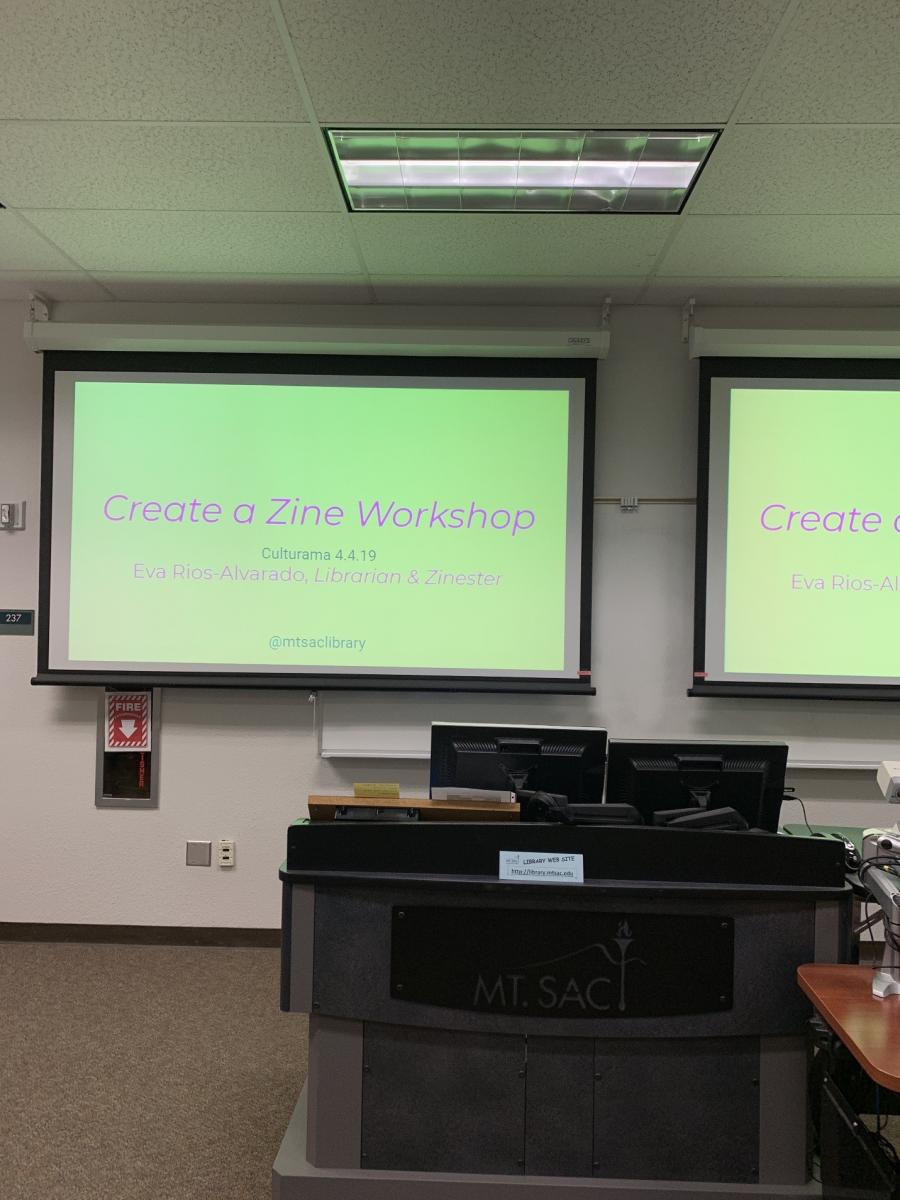The Power of Zines in Your Class
By Eva Rios-Alvarado, Mt. San Antonio College and Annie Knight, Santa Ana College
Libraries and librarians are doing amazing work with zines. According to Wikipedia, “A zine (/ziːn/ ZEEN; short for magazine or fanzine) is a small-circulation self-published work of original or [remixed] texts and images, usually reproduced via photocopier. “ Here, in the greater Los Angeles area we are fortunate to have many librarians and non-librarians who have been using zines for instruction, activism, self-expression, healing and more. If you did not know, there are some great local resources for potential zinesters in and out of higher education. Many local libraries including Los Angeles Public Library, through the efforts of Ziba Perez Zehdar, are now collecting zines! Another great resource is Cynthia Orozco’s, “Zines @ ELAC” guide at East Los Angeles College Library.

Do you teach with zines? We do. Maybe you should too? Earlier this year Annie Knight, who has been part of zine culture since the 90s, and I, a newbie and LA Zine Fest attendee, sent out a call for input to zinesters in higher education. The survey results are still in the process of informing our upcoming, “Instructors Guide to Teaching with Zines” to support colleagues who would like to teach with zines or who are thinking about teaching with zines and just need a little nudge. Essentially, we are two community college librarians who believe in the power of zines in the instructional and library programming setting, and we want to provide support to others who have the same interests.
Why should you consider incorporating zines into your instruction?
- Zines provide a robust and authentic alternative to the annotated bibliography
- Zines are a path to authorship allowing students the title of zinester
- Zines can be on any topic and support the objective of research as inquiry
- Zines support the personal and reflective aspects of the information creation process
- Zines are just fun!
Take our survey which asks about your familiarity with zines and how they are used in teaching. Your responses will greatly impact our upcoming guide for faculty using zines in their college classes. If you would like to share any examples of instructional lessons or thoughts from teaching while zineing, we welcome your communications and support.
Califas Librarians,